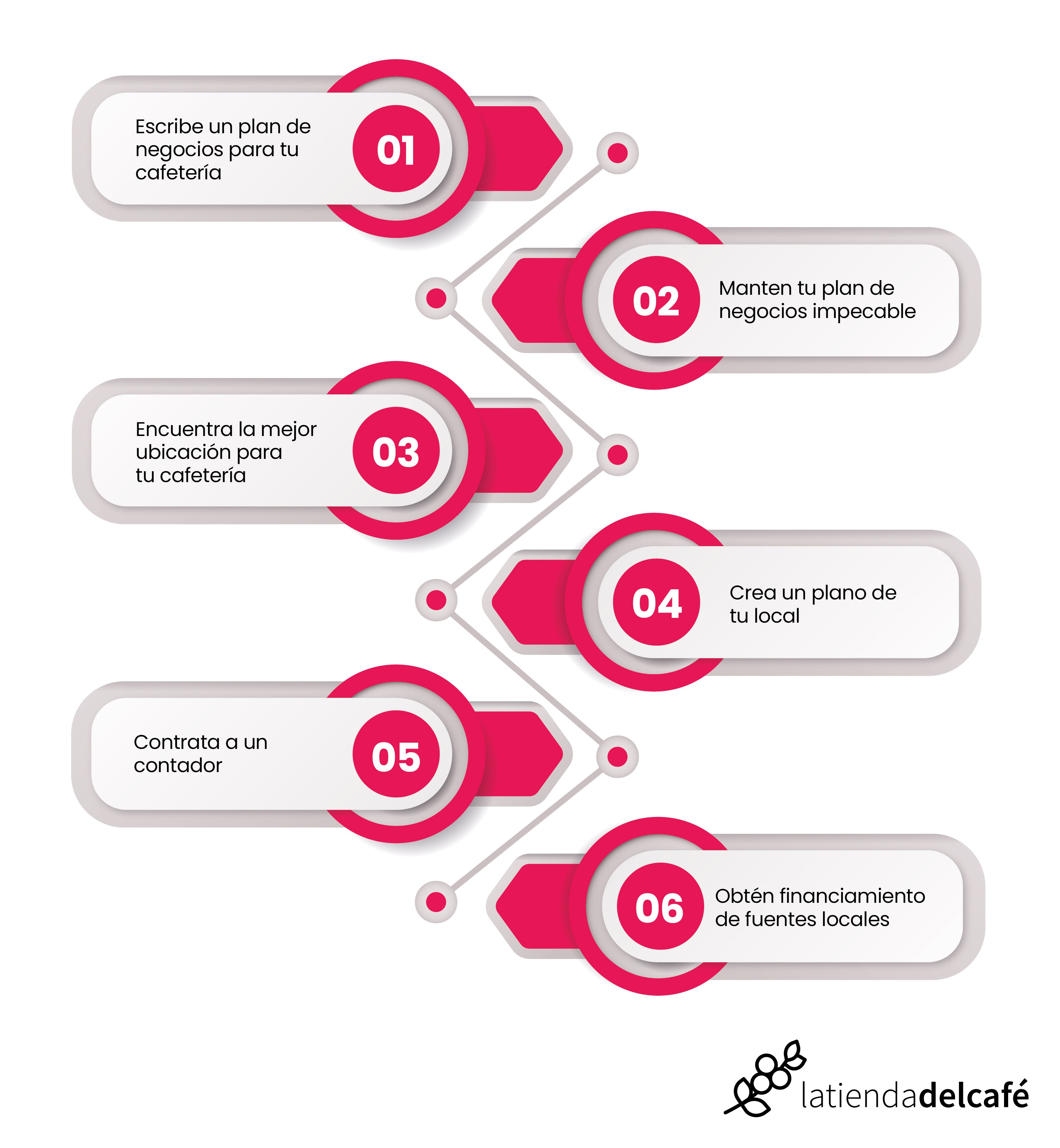Good news, coffee lovers. Worldwide, experts estimate that people drink around 2.5 billion cups of coffee a day, and sales in the ready-to-drink market, which includes coffee shops, are forecast to grow by 67 percent between now and 2022. Additionally, coffee and other ready-to-drink stores show incredible resilience in volatile markets, helping to eliminate the uncertainty associated with small business ownership. If you've been thinking about combining your love of coffee with your entrepreneurial spirit, it may be time to try opening a coffee shop.
So, if you've already decided to dive in and open your own cafe, opening a successful coffee shop can be a rewarding experience. Thanks to you, hundreds of friends will have great conversations. Thanks to you, mornings will be brighter and afternoons will seem less stressful. You'll have more influence on society than you realize. All you have to do is set up your cafe, although that's easier said than done. This step-by-step guide to opening a cafe will help you get started on the right path.
Here's what they recommend you keep in mind when opening a coffee shop:

Write a business plan for your coffee shop
One of the most important steps you'll take to start your coffee shop is to write a business plan. This document details:
- What is your business and who does it serve?
- How it will be profitable
- Your target market (main customer demographics)
- Your competitors
- Sales and revenue projections
- Milestones and goals
Keep your business plan flawless
Before diving into creating a traditional long-form business plan, it's a good idea to create a one-page pitch. This will allow you to quickly validate your business idea and get a good idea of your market, how you'll reach them, and find ways to differentiate yourself from your competitors. Will you use only high-end coffee grinders and bean varieties? Will you also include baked goods on your menu?
Find the best location for your coffee shop
To be successful, you need the right location for your coffee shop. You want something that fits the following parameters:
- Central location and easy access
- Highly visible and experiencing constant foot traffic
- A space that adapts to your vision
Finding this dream location won't happen overnight. You'll need to explore city after city, exploring each location. Are you close to lots of other cafes or in your own little alley? Remember, you'll be spending a lot of time there, so make sure you truly understand what makes the locals tick. It's also vital to understand the details of the retail lease; the terms of this document will affect the profitability and resale value of your business in the future. It's advisable to speak with a lawyer who specializes in retail leases before signing anything. But perseverance and patience pay off; don't settle for a location you don't truly love.
Create a floor plan of your premises
A solid and inviting floor plan is vital for a coffee shop. You want customers to have room to line up, employees to have the materials they need within easy reach for quick access, and a comfortable seating area. As with searching for a location, it will take some time to create a good floor plan.
You'll need to run through every scenario you can imagine. If you're making coffee , what do you need near you? If you're a customer, what do they want in a seating area? Visualize everything you can and start putting those ideas down on paper.
Hire an accountant
One of the best pieces of advice we can offer a new coffee shop owner is to turn their books over to an accountant. Besides taking valuable time away from the business, having a number-crunching expert works to your advantage. In reality, your accountant is truly your small business consultant. Make sure you find someone who believes in you and can help you achieve your business goals.
Obtain financing from local sources
Finding startup funding for a coffee shop can be difficult. You can talk to friends and family about investing in your coffee shop first. Present them with a solid business plan and ask them to invest in your business.
If financing through family isn't an option, or if you need more cash than your family can provide, you can look into local lending options. In some cases, cities offer business assistance programs to offset costs. Consider a secured loan or see if a local bank or credit union is an option. Keep in mind that any bank loan will require you to demonstrate that your business already has some traction. They want to know it represents a reasonable risk. So, if you're not already up and running, there are other options for starting your business that you might consider.